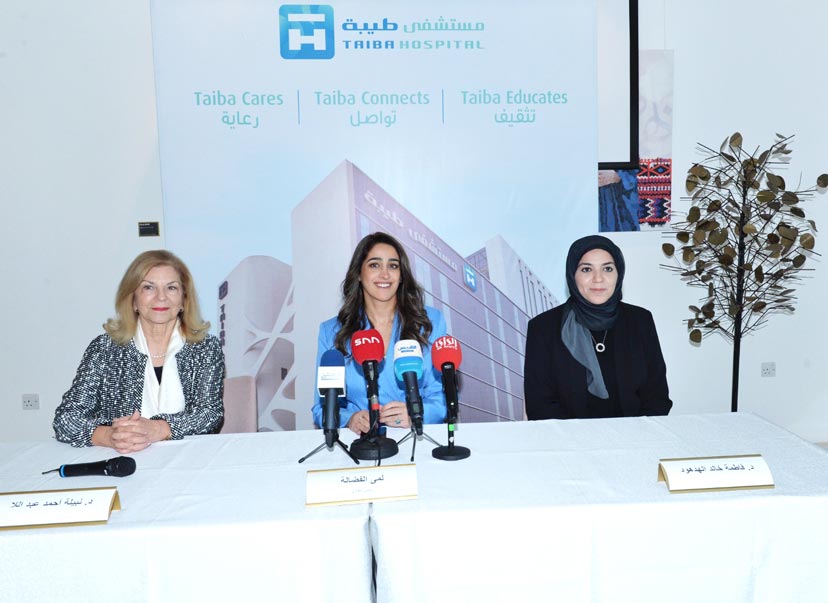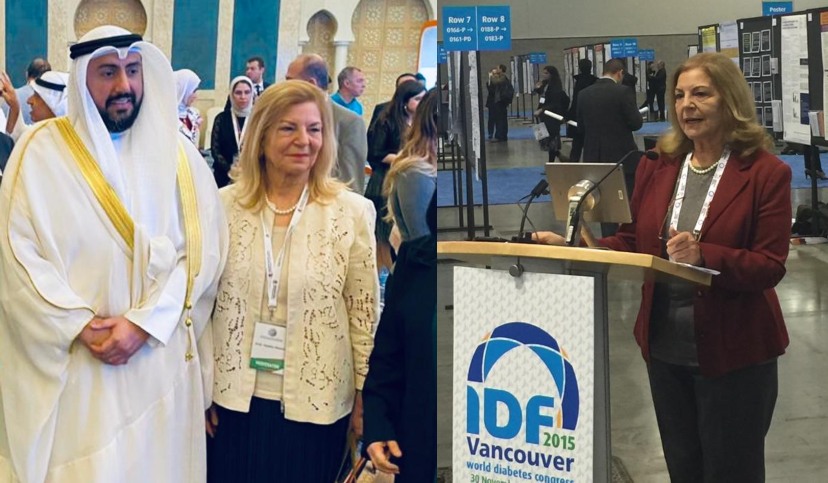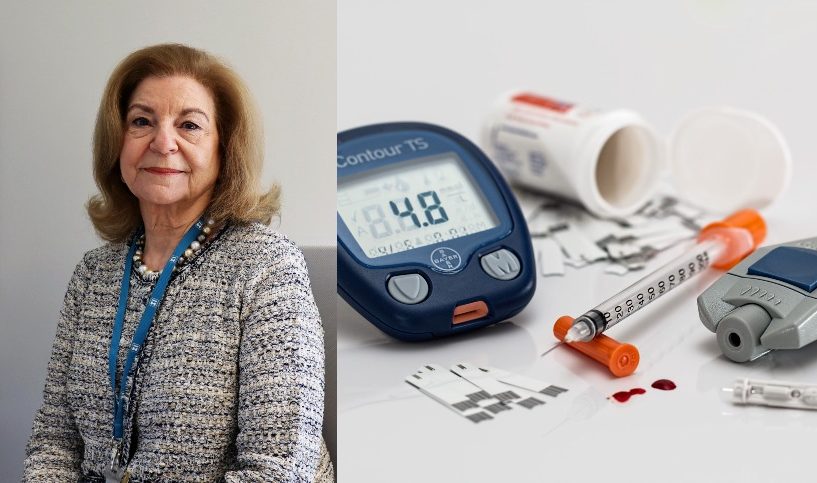In the Arab world, many physicians will tell you that they pursued medicine as a career because their parents pushed them in that direction, or they felt it would be a prestigious choice. Dr. Nabila Abdella, Consultant of Internal Medicine and Diabetes at Taiba Hospital has a very different story.
“As a high school student I was fascinated by the humanitarian aspect of practicing medicine and very curious about understanding how our body functions,” she says. Dr. Nabila goes on to explain how she was a voracious reader of A. J. Cronin’s work, who was a Scottish physician and novelist.
His writings heavily featured doctors as protagonists and pondered questions of medical ethics. Dr. Nabila is exactly the kind of doctor you want on your side if you are dealing with diabetes. She was thoughtful, soft spoken and visibly compassionate when we met with her.
She was also pulled to studying and specializing in the field because D iabetes i s a disease that covers almost all aspects of internal medicine and affects almost all of the body’s organs from eyesight to the kidneys and the heart and nerves. Diabetes Mellitus, commonly known as Diabetes is a considerable problem in Kuwait.

In 2000, Dr. Nabila published a paper on the prevalence of diabetes in Kuwait and showed that over 14% of the adult population of Kuwait had some form of the condition. Now the number is closer to 25% according to the International Diabetes Federation, with similar figures all over the GCC. All countries in the region are in the top ten in the world for prevalence of diabetes.
It all starts with a hormone called Insulin, which plays a key role in the regulation of blood glucose levels. The hormone regulates how the body accesses, uses and stores glucose and fat. If your body needs energy, insulin sends signals to the liver, muscle and fat cells to get glucose from the blood. Once energy levels have become sufficient in the body, the hormone signals to the liver to store extra glucose as glycogen and eventually fat in the body.
There are two common types of Diabetes; in Type 1 the body destroys its own insulin secreting cells in the pancreas through an autoimmune process. Meaning that the patient’s body no longer produces insulin in response to their food intake leading to life threatening high levels of blood glucose. Type 1 Diabetes patients are insulin dependent through injections or pumps that deliver exogenous commercially available insulin.

Type 2, on the other hand is considered a “lifestyle disease”. In most cases it is related to obesity and insulin resistance (when the cells in muscle, fat and liver stop responding to insulin), creating an imbalance between the production of insulin by the body and the increased demand on insulin production which leads in the long run to exhaustion of the insulin secreting cells in the pancreas.
Managing diabetes is a long game and patients need the support and care of medical professionals who understand how to treat it, but also how to help the patient maintain and remain compliant with the plan. Taiba Hospital offers clinical services in a friendly, highly professional atmosphere. They are currently forming a more comprehensive department for the care of diabetic patients consisting of a Nurse Educator, nutritionist and chiropodist under the supervision of three physicians who specialize in diabetes.
Dr. Nabila herself enjoys working at the hospital, “it is an enriching experience, with easy access to all specialities of medicine,” she explained.
There are many things anyone can do to help prevent developing the disease. “Lifestyle change is the cornerstone of diabetes prevention,”Dr. Nabila told us. She further explained that a large scale study in the USA and Finland showed that a mere 5% decrease in body weight and 30 minutes of exercise only five days a week showed a significant reduction in the development of Type 2 diabetes.
Dr. Nabila recommends that everyone make sure that they maintain a healthy body weight and work on losing weight if they need to. She adds that young people should avoid consuming too much fast food, especially calorie dense and low nutrient meals.
A simple walking program is something anyone can do anywhere and she urges us all to commit to at least 30 minutes a day. Regular medical checkups are something everyone should schedule too, especially if you are experiencing excessive thirst, urinating more than usual or have gained or lost unexplained weight recently.
Taiba Hospital is located in Sabah Al Salem, off of route 30 on Road 3. Call them 24 hours at 180 80 88. For updates and information, visit the website taibahospital.com, and follow them on Instagram @taibahospital.








